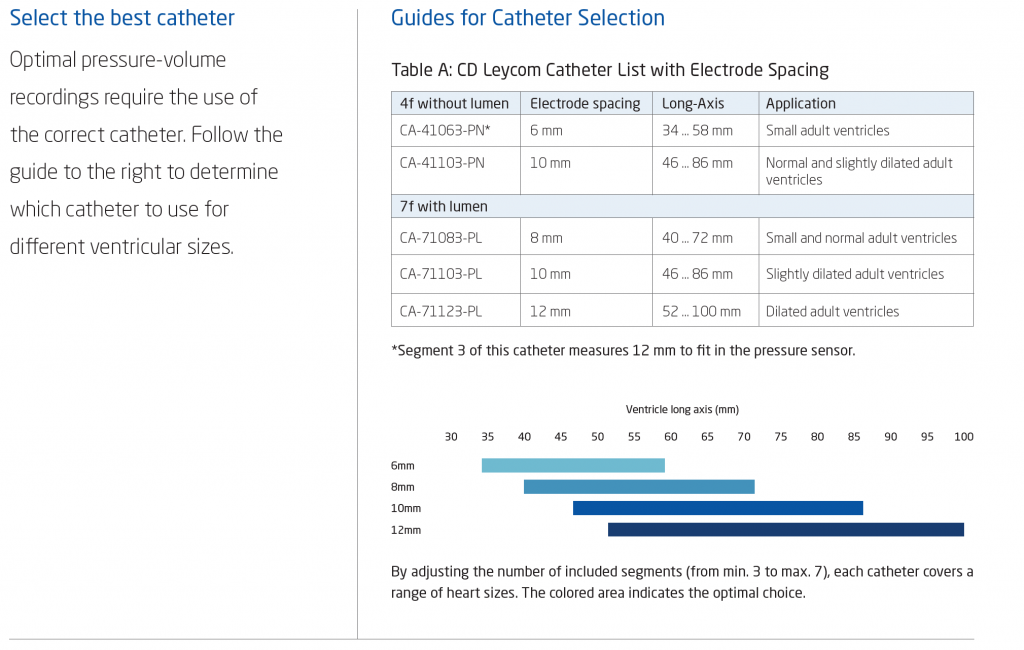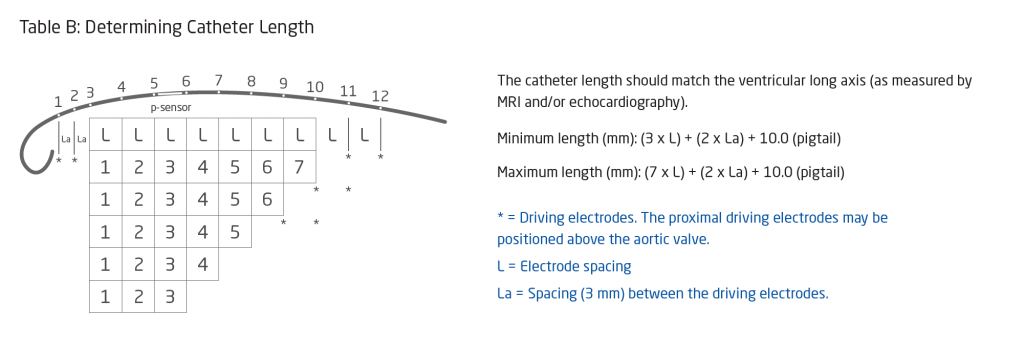PV Loop Catheters
CD Leycom’s pressure-volume loop catheters provide real-time ventricular PV loop data, enabling a complete assessment of cardiac function from a single catheterization.
- Compatible with both the Inca® (clinical) and Sigma-M© (research) PV loop systems
- Available in 4-French and 7-French sizes
- Minimized signal drift with full-bridge, solid-state sensors
These catheter’s utilize high-fidelity sensors to provide real-time, beat-to-beat PV loop measures originated from the Baan’s equation principle.
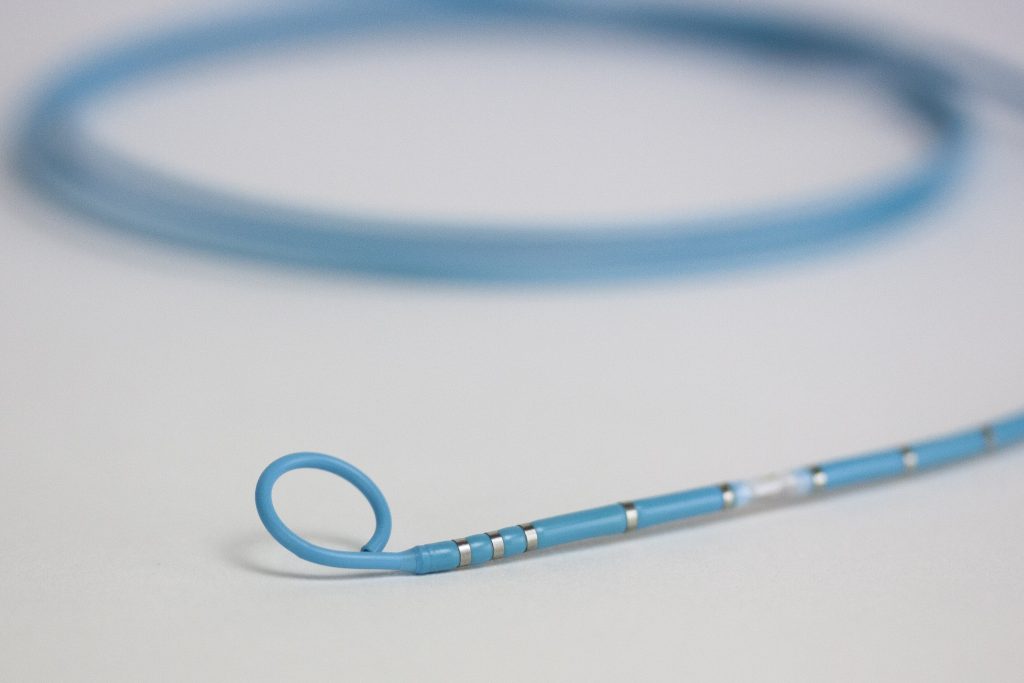
4-French PV Loop Catheter
- 4F pigtail catheter 12 electrodes; 1 pressure sensor between electrodes 5 and 6
- No lumen; typically used with an appropriate sized introducer sheath for delivery
- Electrode spacing options at 6 mm and 10 mm between the electrodes
7-French PV Loop Catheter
- 7F pigtail catheter with 12 electrodes; 1 pressure sensor between electrodes 5 and 6
- 0.025” lumen; typically used with 0.025″ exchange-length guide wire for delivery
- Electrode spacing options at 8 mm, 10 mm and 12 mm between the electrodes
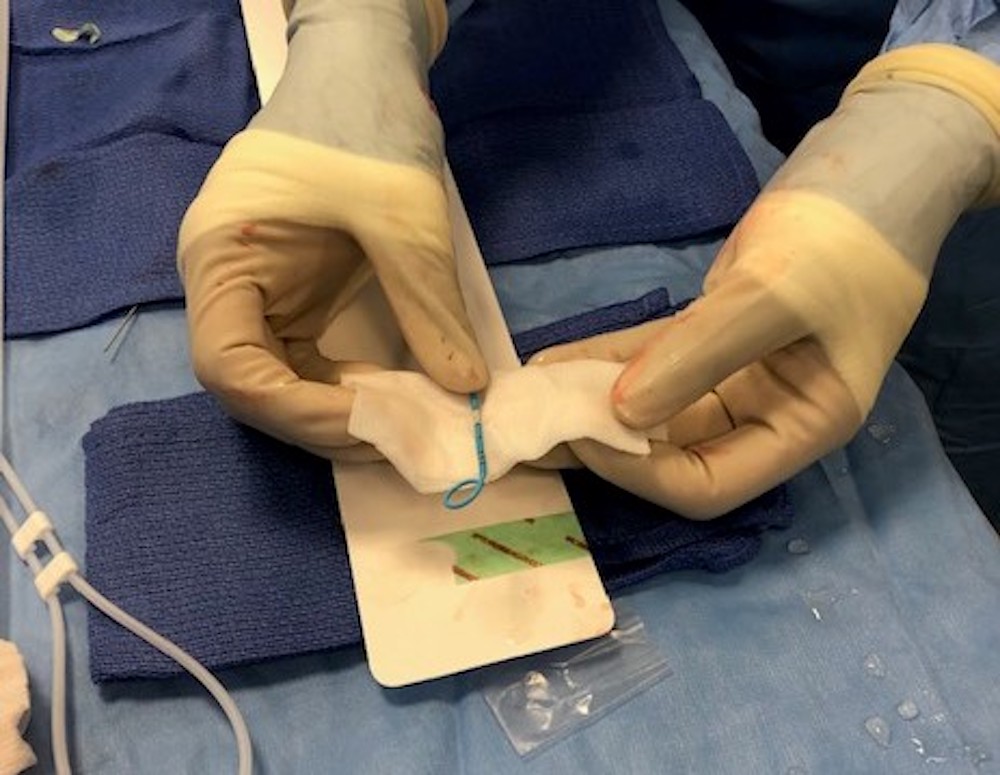
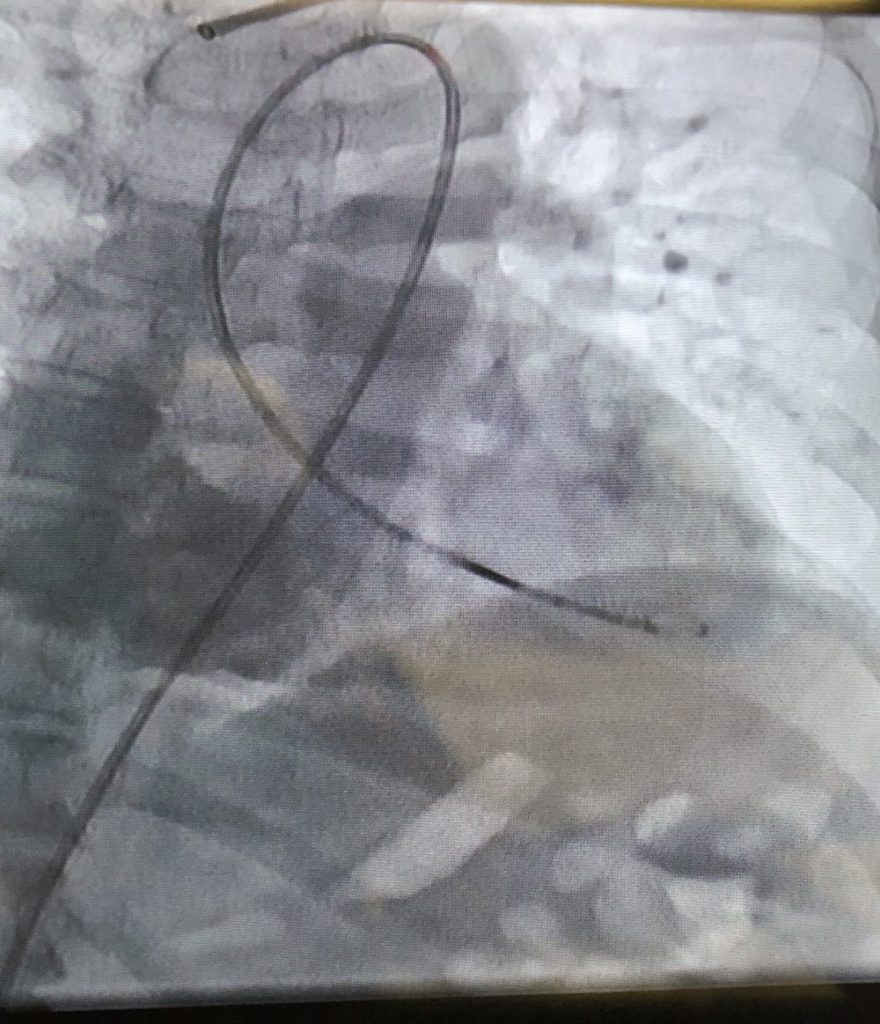
Ideal positioning of the 7F pressure-volume loop catheter in the left ventricle.
